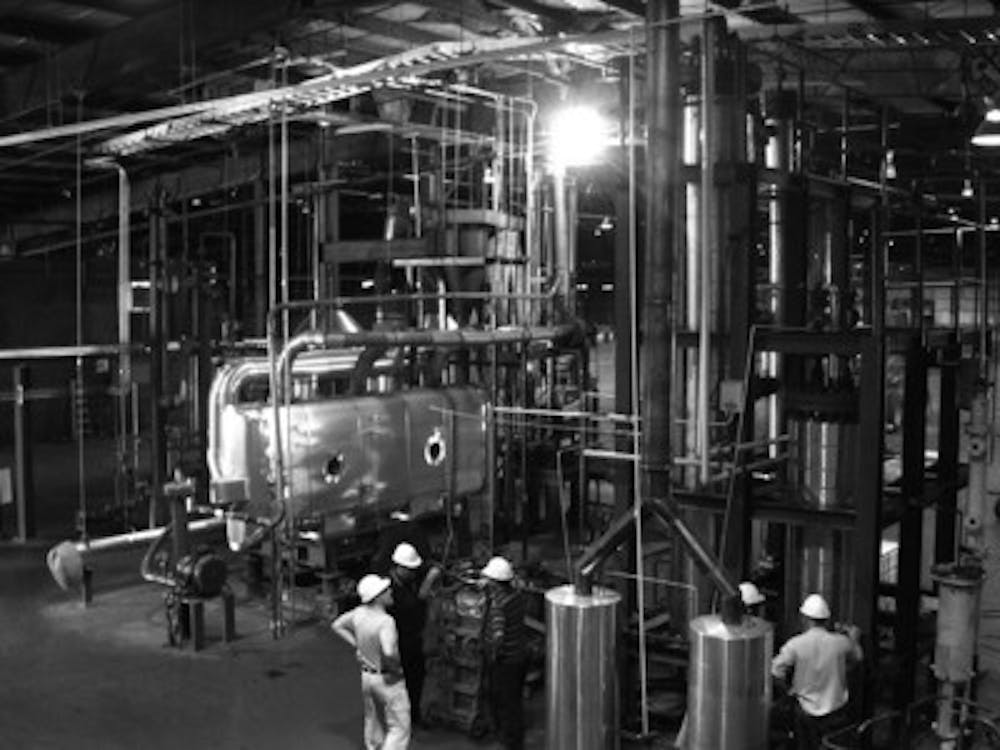Alabama cities are striving to find alternate sources for fuel that will reduce their dependency on foreign oil. Hoover is the first city in Alabama working toward this by converting wood waste into ethanol.
Gulf Coast Energy, a manufacturer of renewable biofuels, is working with Hoover Mayor Tony Petelos to get this project underway there.
"[Hoover city employees] are working with Gulf Coast Energy to take their wood waste material, which is yard debris, trees, limbs, and they're chipping that material," said Larry Fillmer, executive director of Auburn's Natural Resources Management and Development Institute. "Then Gulf Coast Energy is using the gasification process that is proprietary to their company to produce ethanol, which in turn they will eventually supply back to Hoover."
Gulf's Coast's Web site says wood waste can also produce diesel, kerosene, synthetic gas and other fuels.
"This is the only project that I'm aware of that is producing ethanol right now," Fillmer said. "There are other projects around the state that are using a variety of materials to produce bio-diesel."
The Web site says Hoover's municipal fleet management department is running a program to collect used cooking oil from restaurants to convert it into bio-diesel to fuel equipment.
Petelos visited an Auburn political science class and spoke about the ongoing discovery of new fuel sources.
"I think Hoover being one of the fastest growing cities in the state adds to the validity that the wood waste idea can really work," said Austin Ellard, a junior in history who heard Petelos speak.
Meghan Youngpeter, another student who heard Petelos' lecture, said Petelos and Gulf Coast Energy are working on the process of using cooking grease to run cars.
"I think it is a great idea," said Youngpeter, a junior in political science. "Gas prices would be lower and it is great to start searching for an alternative to oil."
Auburn was the first university in Alabama to convert its 40 transit busses from diesel to bio-diesel fuel.
According to the Gulf Coast Energy Web site bio-diesel is a cleaner burning fuel than regular diesel, and can be produced from renewable resources. Petelos told students that Hoover police and city vehicles are running on gasoline derived from corn oil.
Fillmer said the greatest concentration of ethanol refineries are in the corn-belt region in the mid-west. A lot of ethanol is produced from corn instead of cellulosic material like wood waste.
"You're not in competition with food for example," Fillmer said about fuel made from cellulosic materials like wood. "You don't have the food versus fuel debate that has sort of surrounded the corn based ethanol production."
Do you like this story? The Plainsman doesn't accept money from tuition or student fees, and we don't charge a subscription fee. But you can donate to support The Plainsman.





